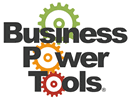I’ve been seeing a number of emails lately discussing various versions of failure.
Entrepreneurs are encouraged to “fail fast.” As if that’s a good thing.
The problem, as I see it, with encouraging failure, while the real message is intended to encourage taking action without fear, see what happens, learn from it and keep going, is still setting one’s goal / intention / expectation as “failure.”
Fail fast… Yeah, I get it: Do something, do it on the cheap, get it over with, learn something, iterate(?) and keep going…
However, in the book, The Four Agreements, author Don Miguel Ruiz expresses, “Be impeccable with your word!” as one of those four. Being impeccable with your word means wielding your words carefully and consciously as they describe or decry your world as it may be perceived by you. That includes what you say to yourself. As well as the very words you use to think with.
Encouraging oneself to “fail fast”, I believe, sends a faulty message.
(See my post, “Don’t Read this! The Trouble with Negatives”)
Perhaps a gentler term for failure in this context would simply be to “experiment” or “test.” The same end result, but without invoking, “failure.” Maybe it’s just me, but a failure conjures up a vision of a smoking crater where my failed project just crashed and burned. With that visual, quitting comes to mind! Just make up an excuse, find someone or something to blame, stick my tail between my legs, and go home.
However, many successful people will tell you the number one rule for success is perseverance! Failure is quitting.
An experiment or test, on the other hand, can be perceived as much less daunting. Much of success or failure in life has to do with perspective – how you look at things. When I’m testing or experimenting, I’m taking baby steps, investing as little money as possible, tracking results, and iterating. Thomas Edison did that 1,000+ times to create a working light bulb.
“Only a fool tests the water with both feet.”
~ Chinese proverb
We’re told that we learn from our mistakes — When we make mistakes we study what went wrong and figure out how to fix it.
When we succeed, we celebrate and move on, but how often do we study what went right and consider how to repeat it?
Like me, I suspect that few people ever told you that you learn from your successes. So, consequently, I could do 10 things in a day and have 9 of them go right. And, what do I focus on? The one thing that went wrong. I hash out in my mind what could have been done to make that one thing better. How could I have not made that one mistake? How could I improve myself? I almost completely ignore the 9 things that went/I did right.
Successful Internet / Direct marketing people take the exact opposite approach. In fact, they make a science of understanding what it is that is successful. All the testing used by direct marketers is to see what works. Which advertisements pulled the best, which mailing list pulled the best, which headline made the most people call or click, which offer did people buy the most?
These days you can easily test different web pages, headlines, buttons, offers, etc. in real-time.
(We use Optimizely.com to A/B split test on our website.)
Our path of learning looks like a pattern of mistakes
What if we look at this pattern from a different perspective? The mistakes of the past were honest mistakes made while in a learning mode. Yet, mistake-making and excuse-making developed into a habit we are now stuck with. This is not learning! We’re so used to screwing up, embarrassing ourselves, and ducking out that we take fewer and fewer risks with everything we do. Yet now, when we have learned quite a lot from all of our past disasters, we’re actually highly qualified to successfully handle opportunities that used to loom as big risks. We are probably more qualified than ever to succeed at whatever we want. From here, we need not be afraid to apply our knowledge and experience. If we were to apply everything we’ve ever learned through our mistakes (as well as our successes), we would in all likelihood become more successful the next time. This not only applies to our careers, but to everyday decisions we make for or against building our businesses. Think about it. Where can you convert a previously hobbling memory of a mistake to forward some action you must take now?
Yes, you may think this is just an issue of semantics. It is. But words and their meanings count.
And they direct the energy we put behind them to move our world.
Yes, “Be careful what you wish for.” Just think about how you express it.
You’re not failing, you’re experimenting and testing, learning, and improving.
Be impeccable with your words.








